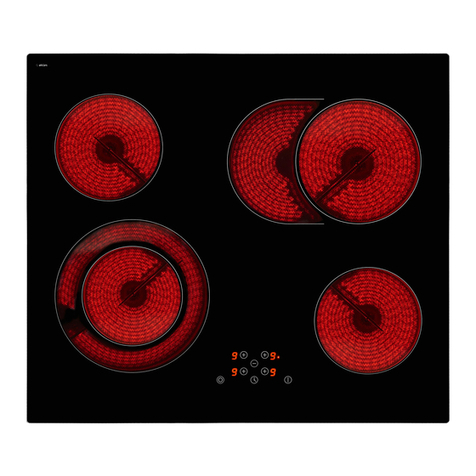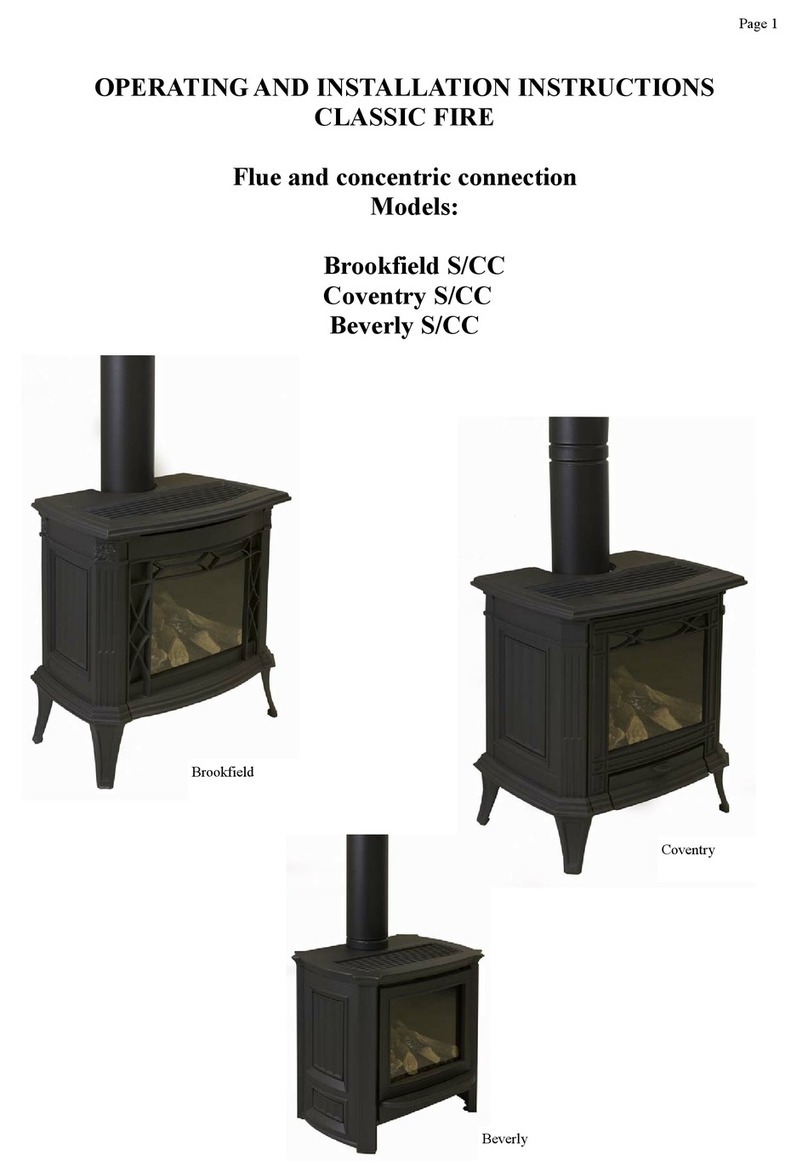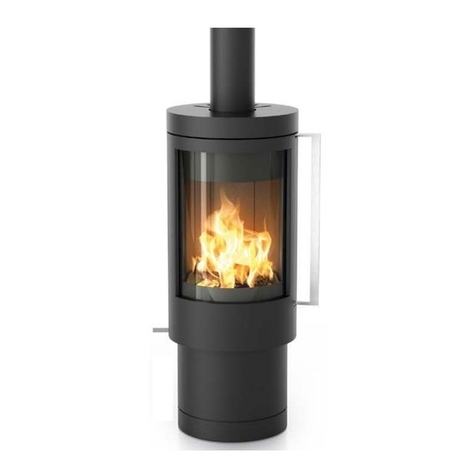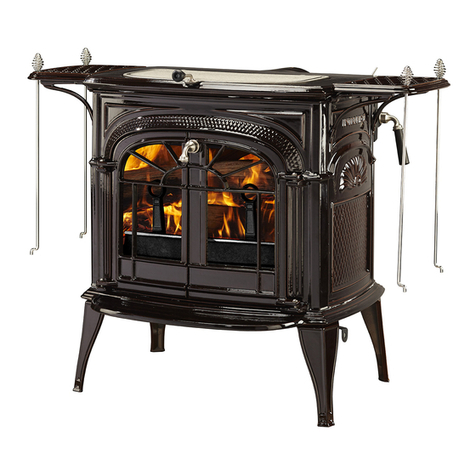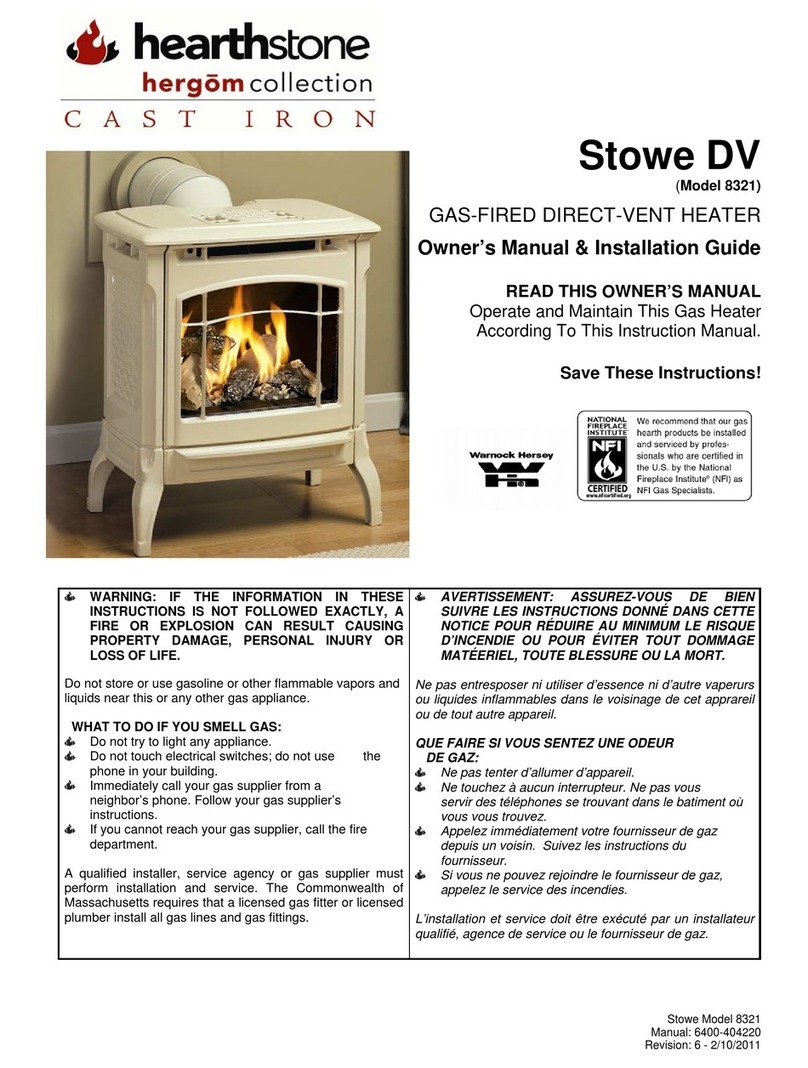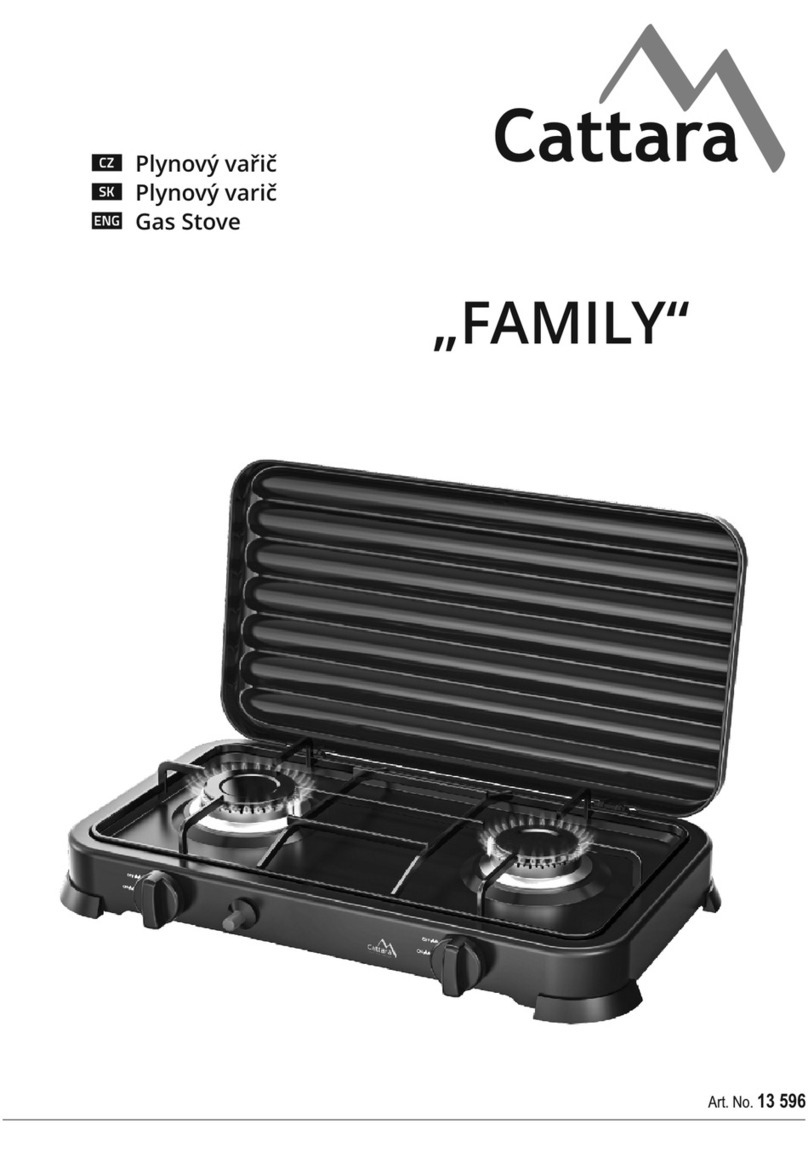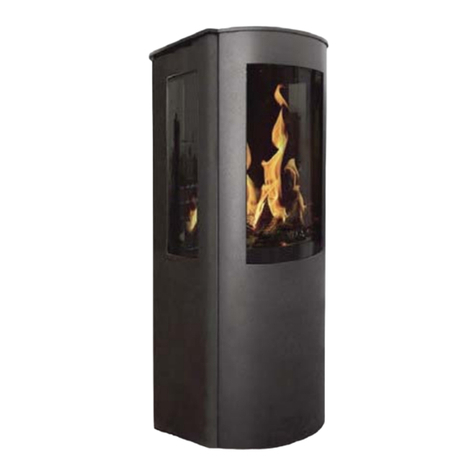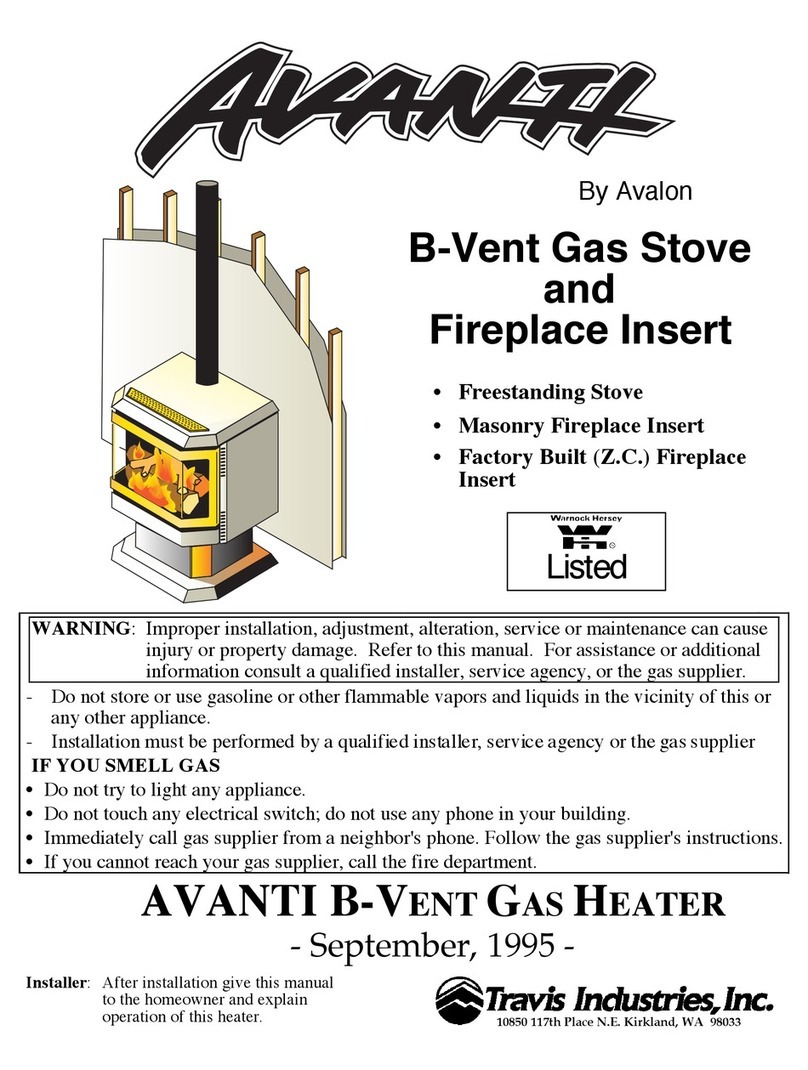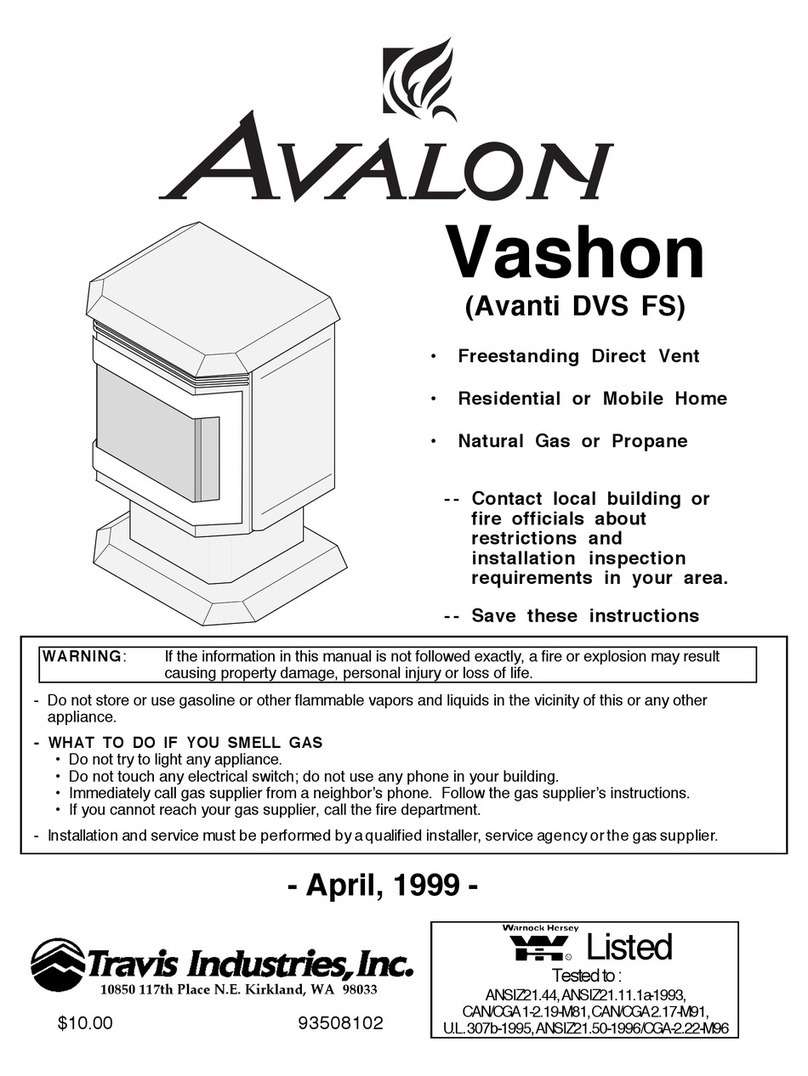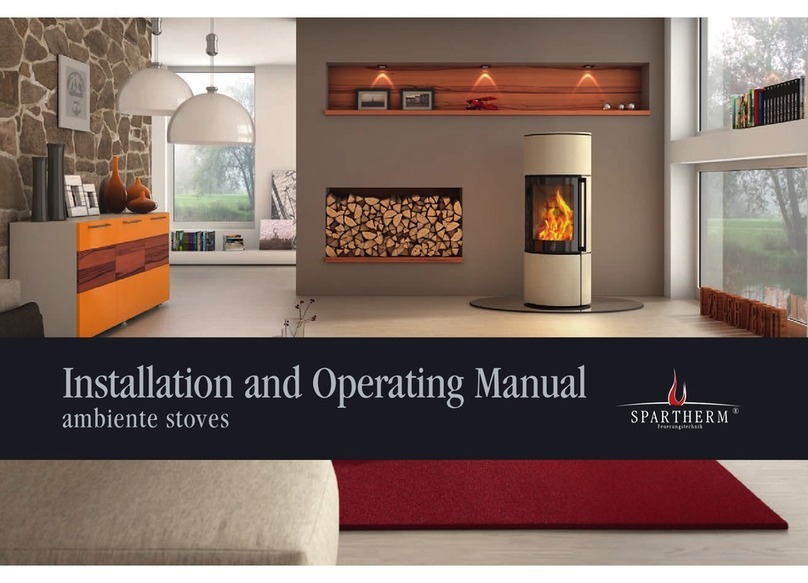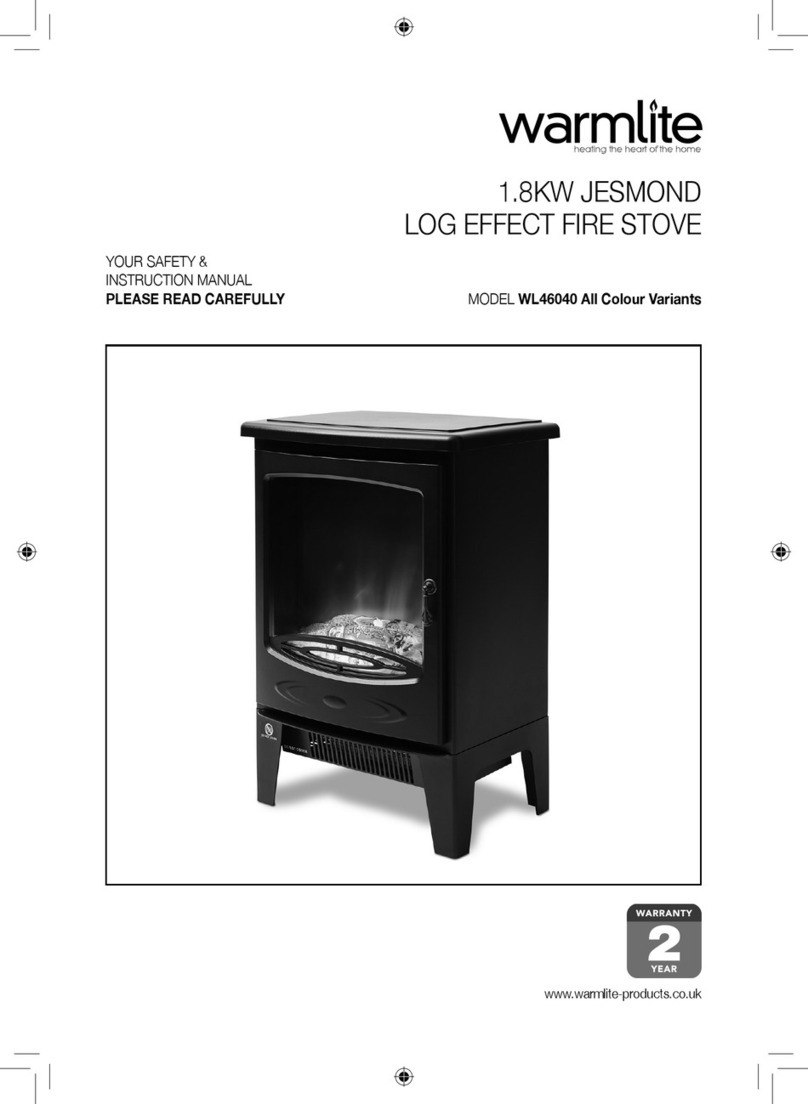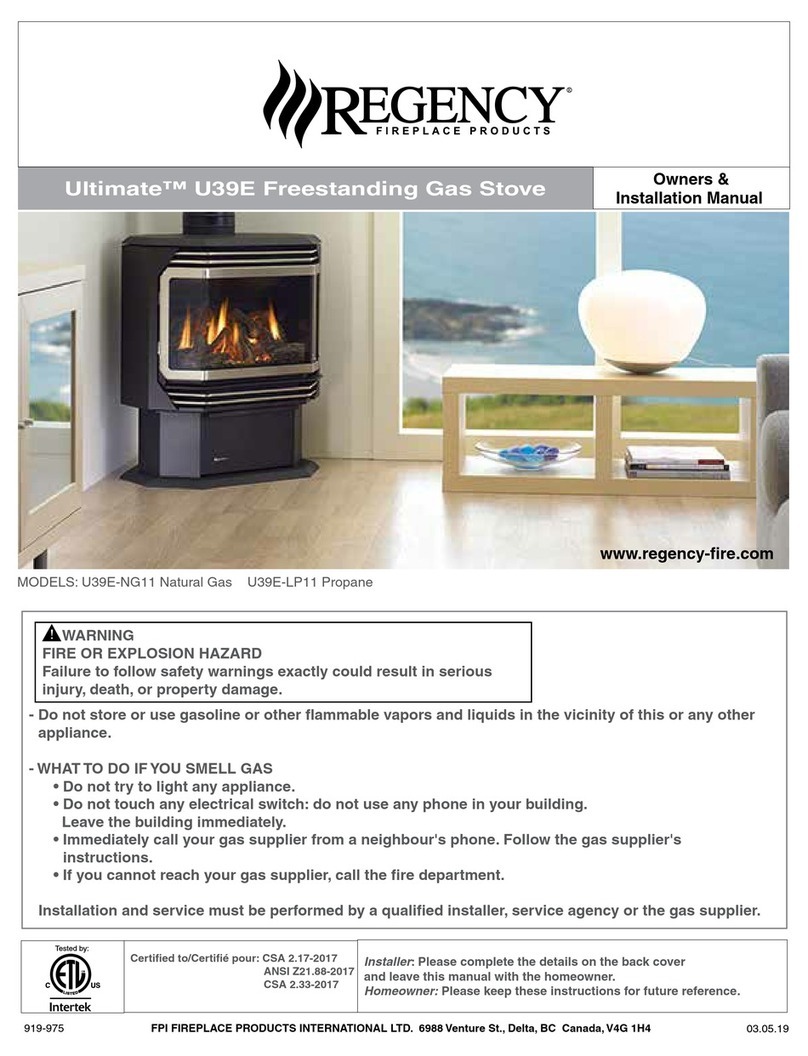
will see that the door is opened, allowing the smoke to rise in the firebox, go
through the trap door, over the top of the oven and out the flue which is
center on the cooktop of the stove.
Cleaning the Kitchen Queen stove
If you use well seasoned wood (cut and split for at least 6 months), you
should only have to clean the stove out on an annual basis. The exception
would be if you burn wood that naturally is full of pitch and creates creosote.
Cleaning may be needed more frequently depending on the type of wood
you burn. When you lift the lid on the cooktop, you will see how dirty the
stove is getting. A soft black substance is the beginning of creosote buildup.
When it turns to a hardened black substance, it is difficult to remove. If this
happens, you can purchase creosote remover at a hardware store or it can be
ordered through Obadiah’s. The type we use is a granulated substance that
is added to a hot burning fire. This will turn hardened creosote to ash which
then needs to be removed from the pipe and the stove. You clean the top of
the stove by lifting the lid. There is also an access door on the back left
hand side of the stove. By removing the door, you will see the cleanout
under the oven. You will need a tool to scrape up the side of the oven to
remove any creosote that may have built up in the side wall.
The ash pan will have to be emptied periodically depending on your usage.
With a shovel or tool, you will remove any ash from the firebox and place
into a metal pail. The ash can be pushed through the grates into the ash pan
below. Open the door under the firebox to remove the ash pan. It does not
have a back on the ash pan. This is so that when you pull it out the ashes
dump out the back side into a metal pail or wherever you choose.
Water Coil Installation
If you install a water coil into the firebox, there must be water connected to
it or the water coil will burn out from the intense heat in the firebox. Water
coils and plumbing must be cleaned in order to prevent hard water deposits
building up in the pipe and causing a restriction. If the pipe becomes
restricted, the pipe can burst if the boiling water cannot pass through it. As
heating water to a boiling point can be dangerous, we advise you to contact a
boiler professional for assistance in setting up a water coil into a domestic
hot water system. Water coils require cleaning on an annual basis. Soak in
white vinegar to remove build up of minerals in the water. Use of a pipe
brush would also be helpful.
